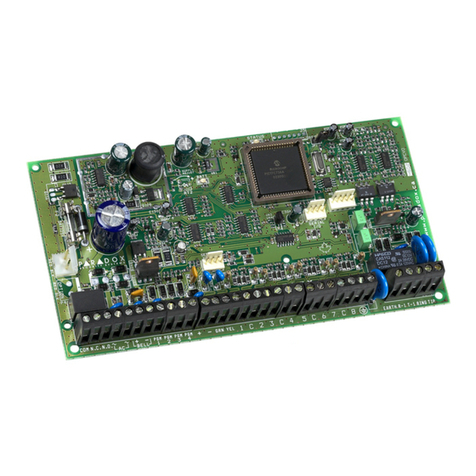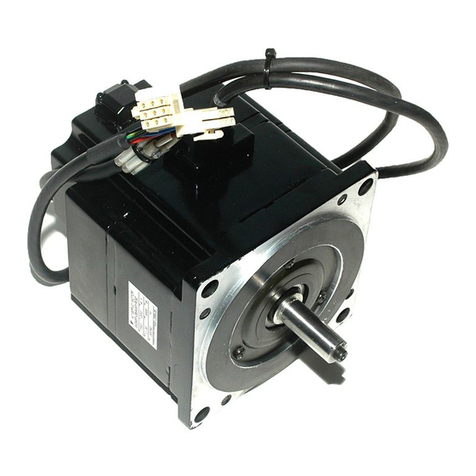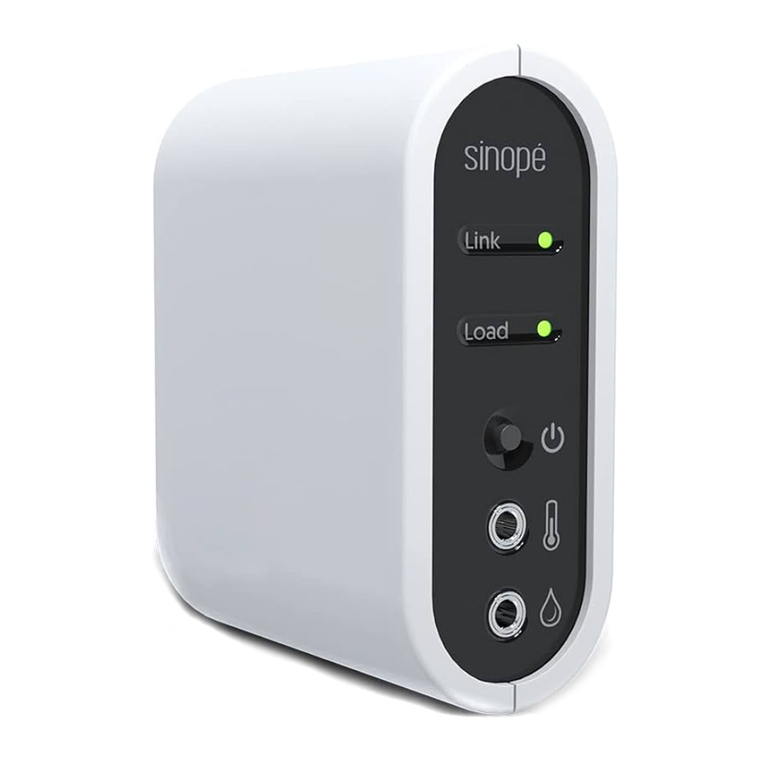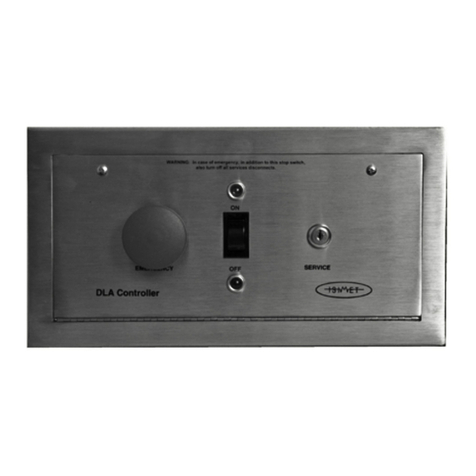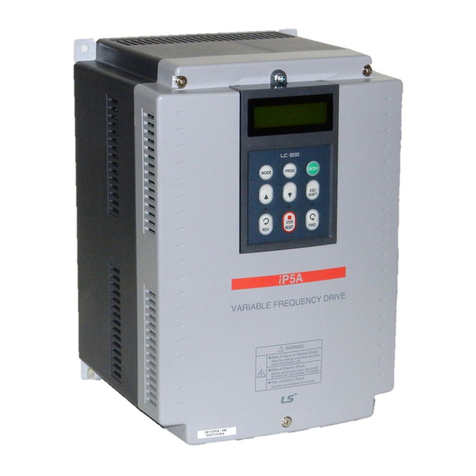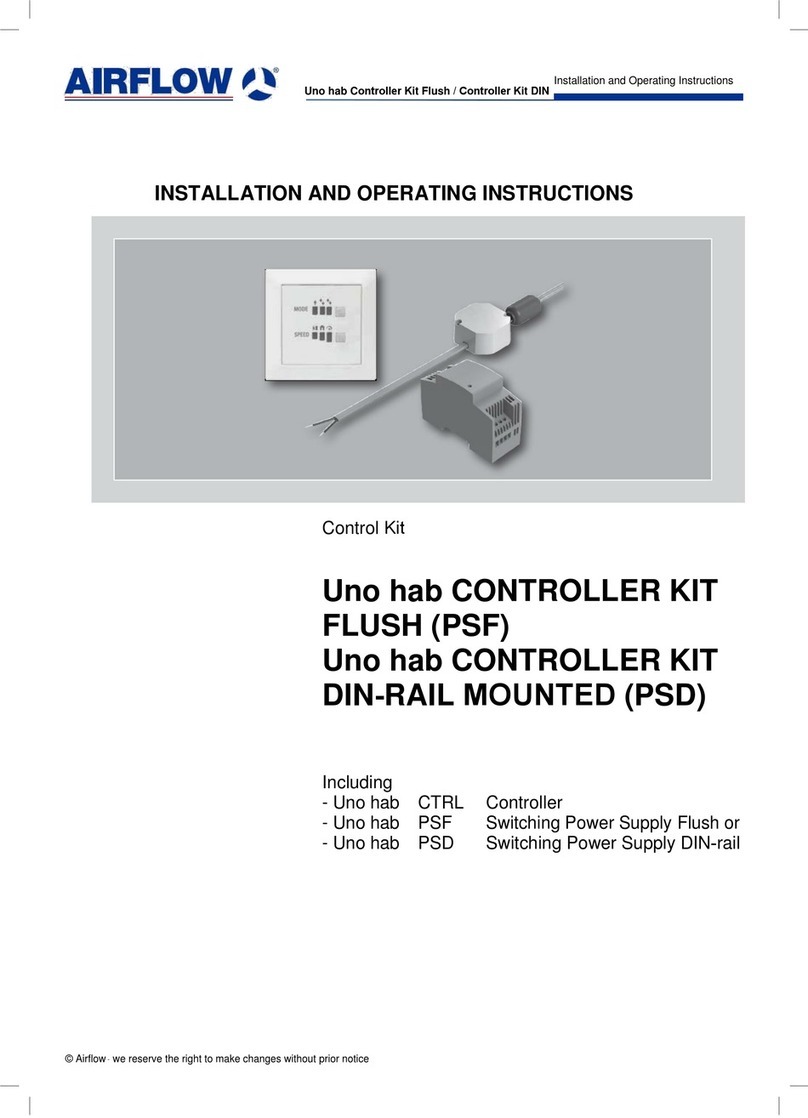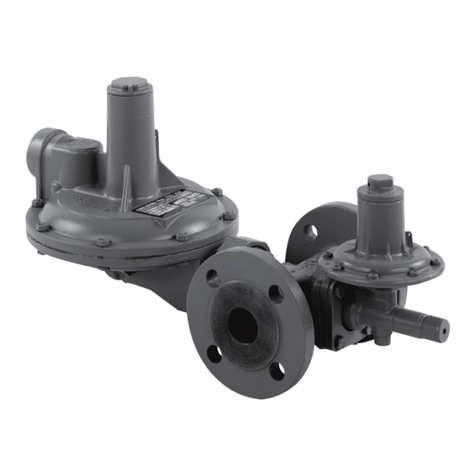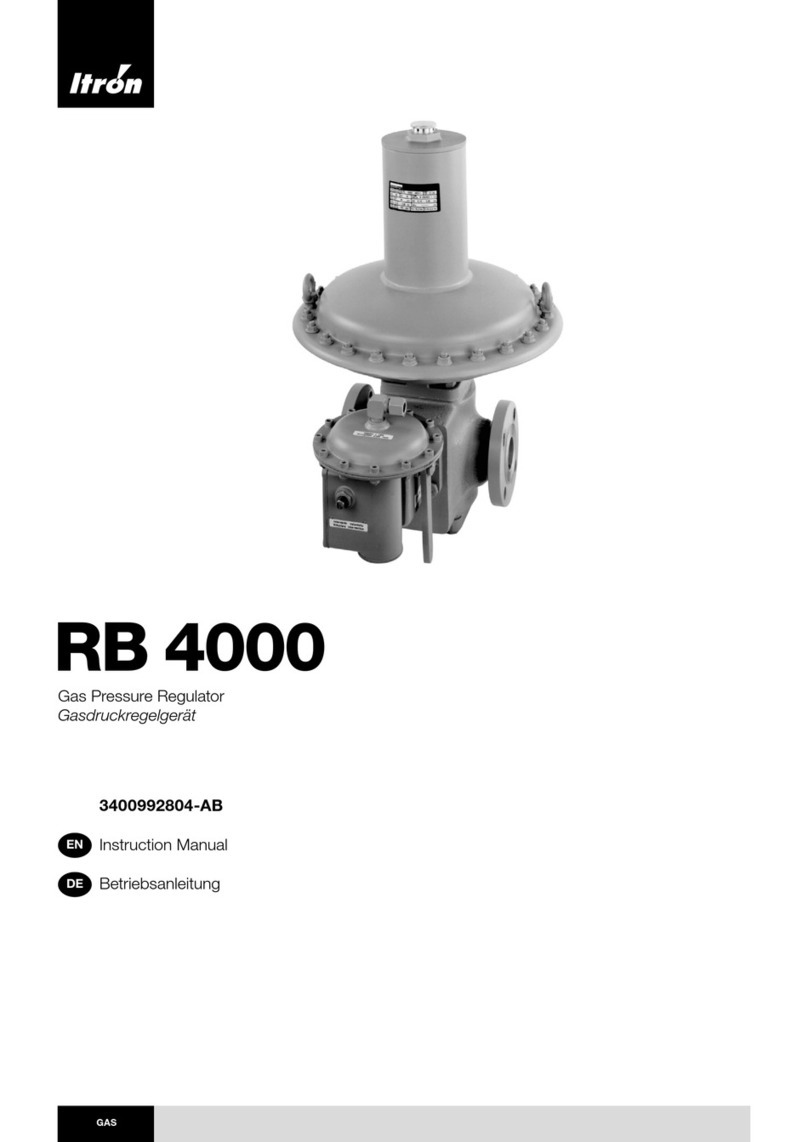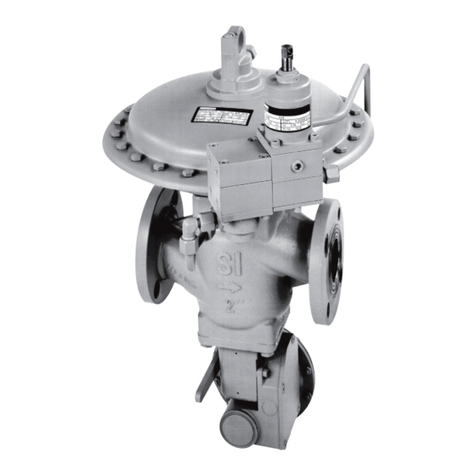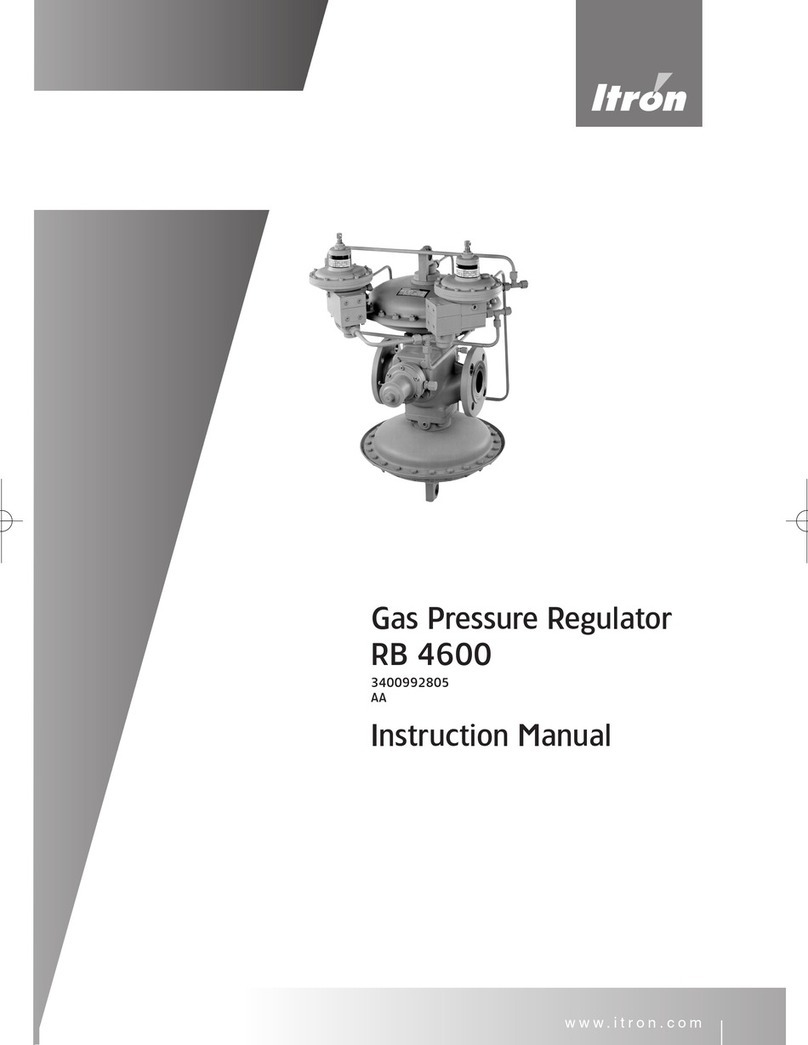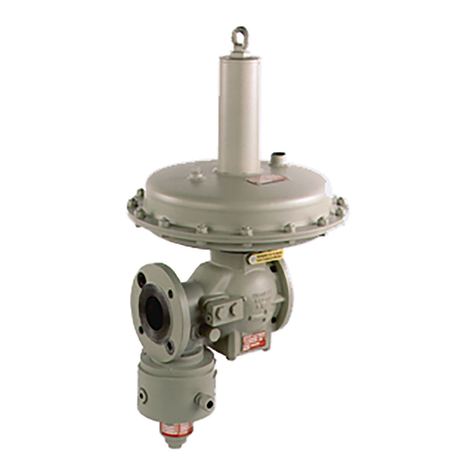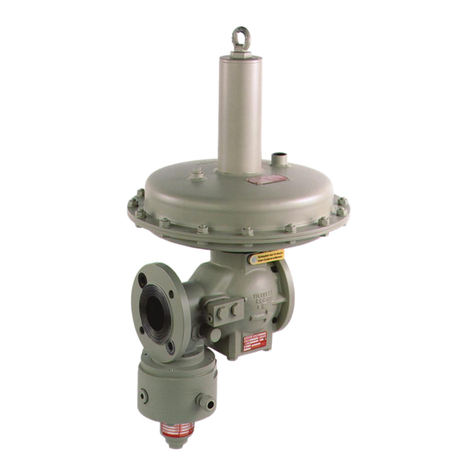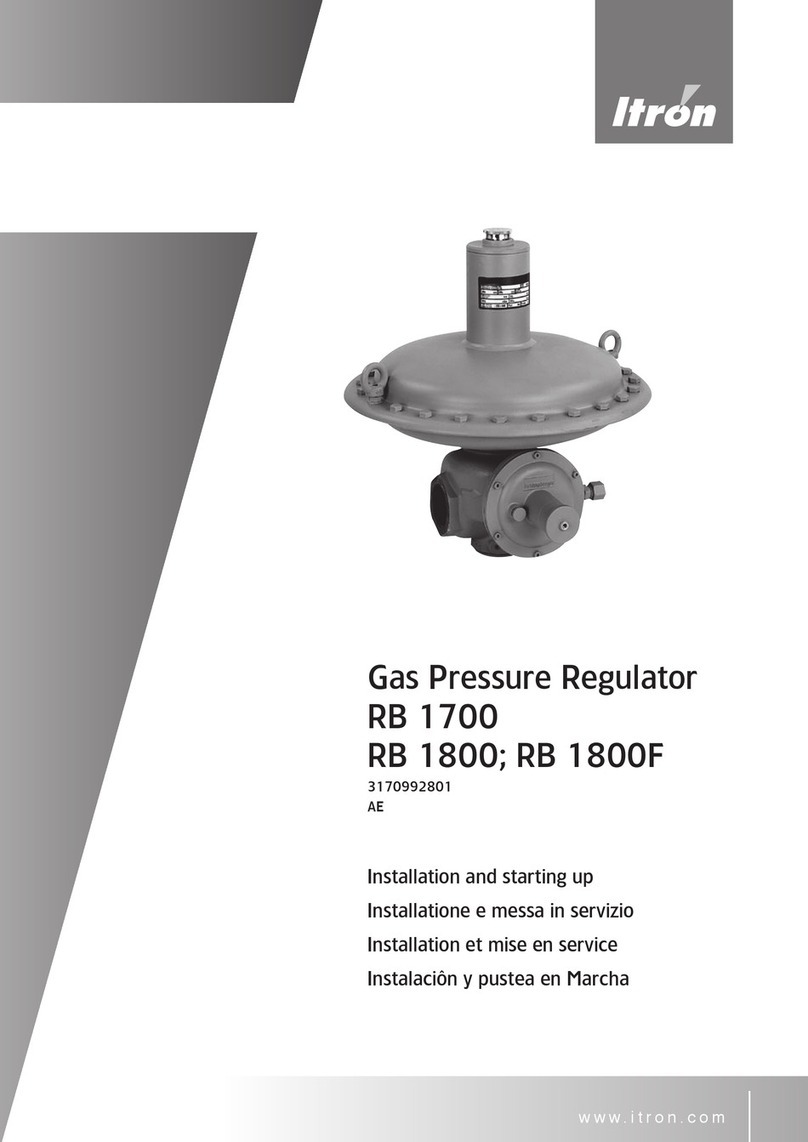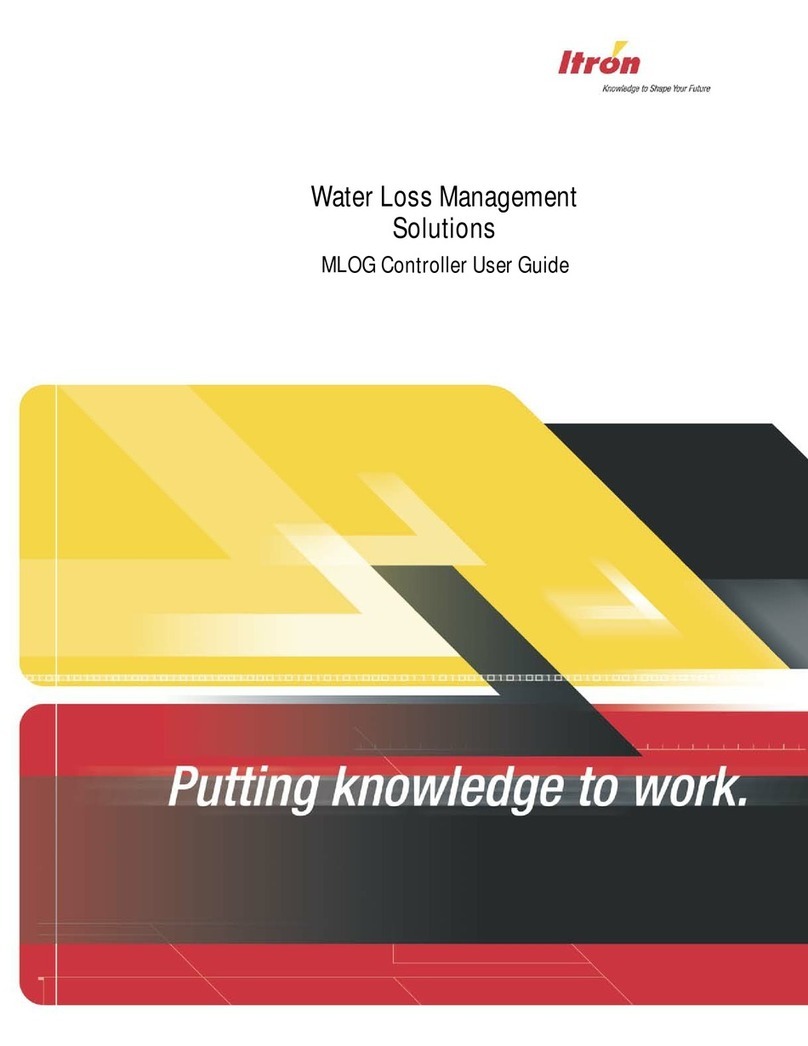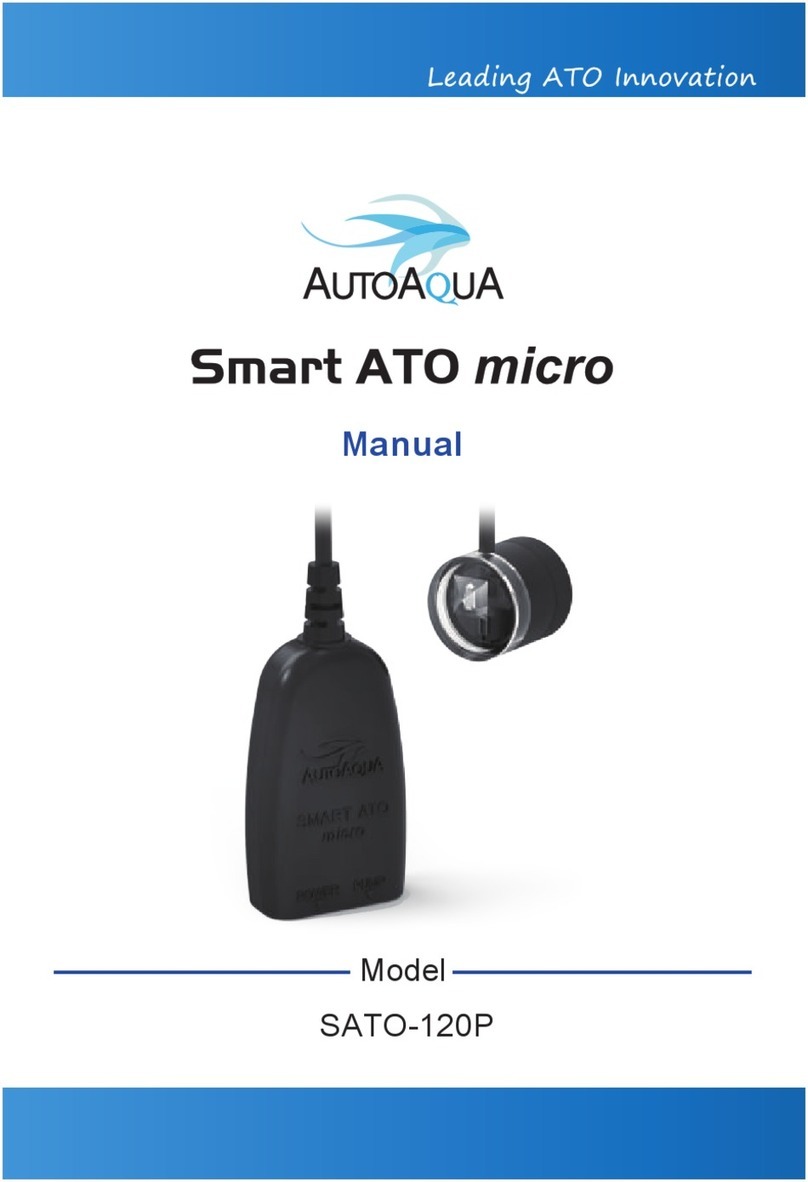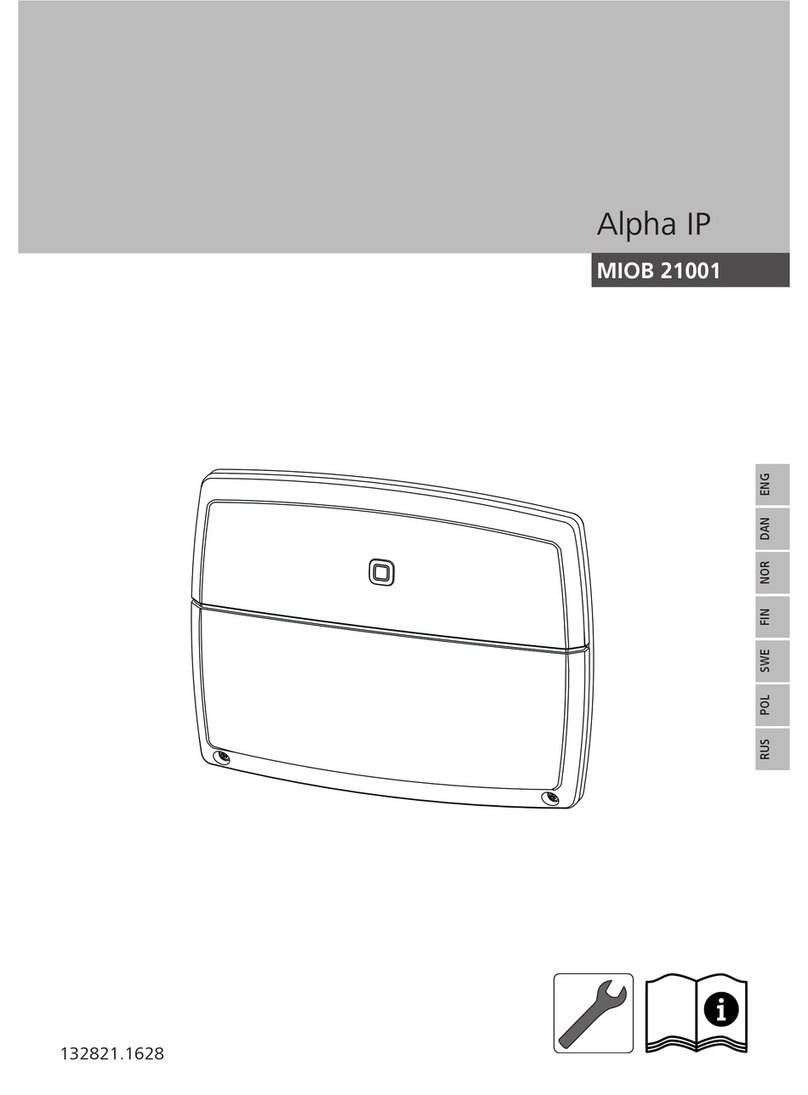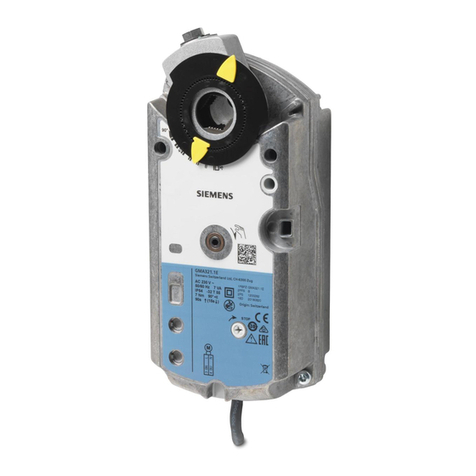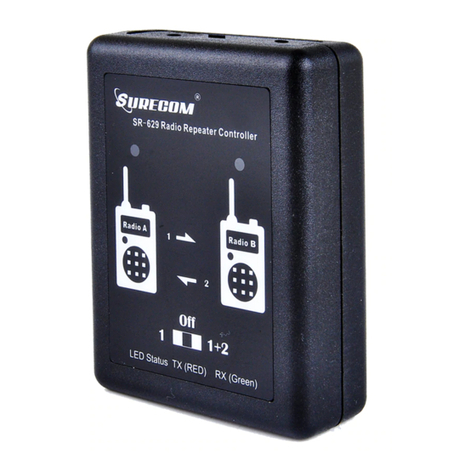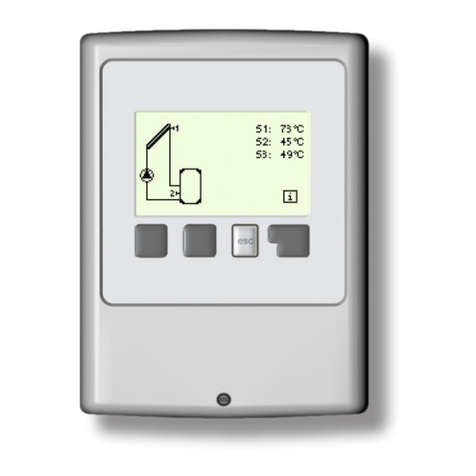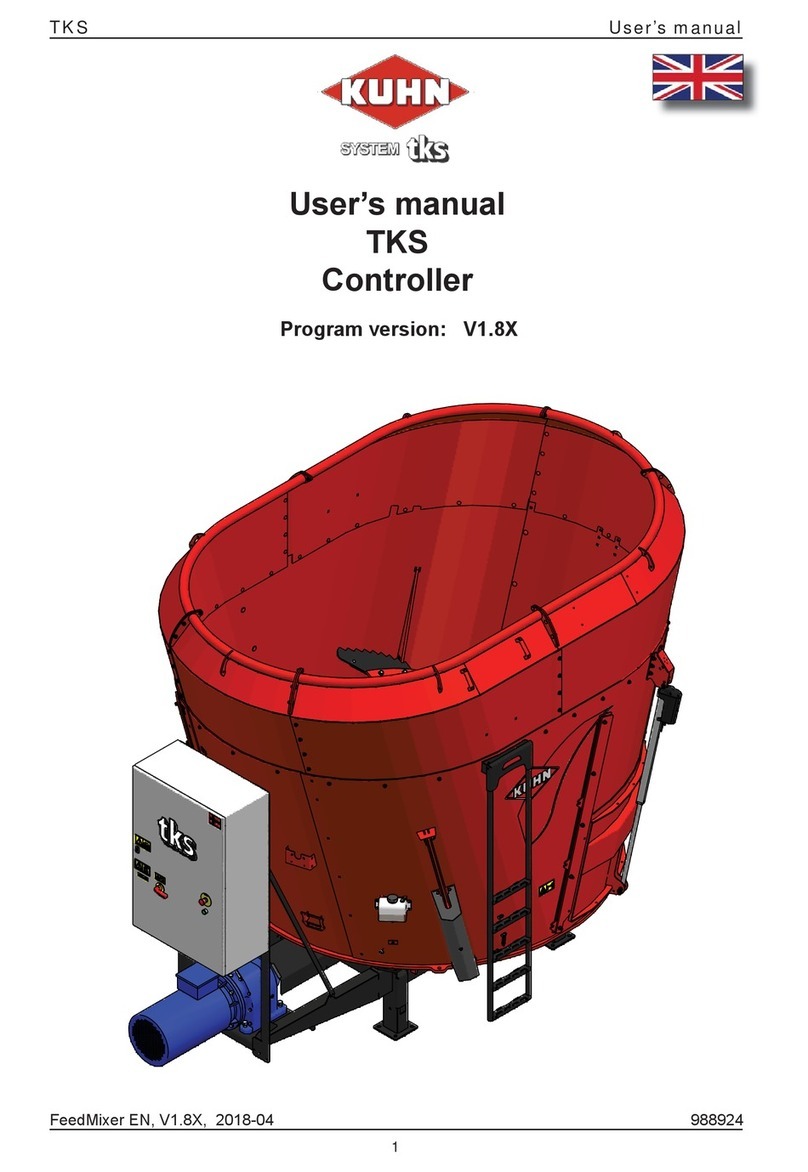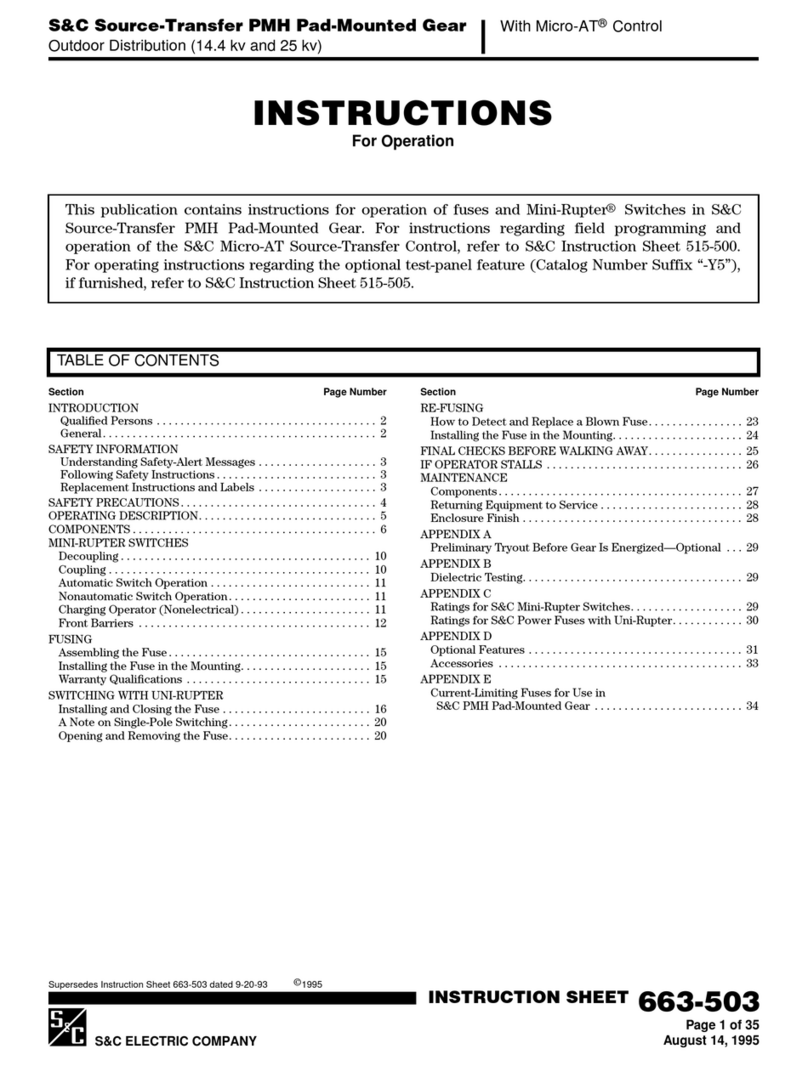
2. To decrease the set pressure value, slowly rotate the spring adjustment ferrule (lock) nut
counter-clockwise using the adjustment wrench until the setting reaches the desired range
(monitor the settings on the downstream gauge).
Important Regulator settings may be changed while the regulator is delivering flow or the
downstream on/off valve is closed. If the downstream on/off valve is closed, you must open the
discharge plug (control line intake) downstream of the regulator. Close the discharge plug after
the regulator reaches the desired setting.
Shutoff Device Settings
Note Verify the installed spring can achieve the desired set pressure value.
1. Check the shut off unit's setting.
2. To reach the maximum downstream pressure:
Close the on/off valve downstream (see the installation schematic). Slowly increase the
downstream pressure until the regulator reaches the maximum intervention pressure.
Rotate the overpressure adjustment spring nut clockwise to increase the set pressure or
counter-clockwise to decrease the set pressure.
3. To reach the minimum downstream pressure:
Close the upstream on/off valve (see the installation schematic). Slowly discharge the downstream
the downstream pressure until the regulator reaches the desired minimum intervention pressure.
Rotate the under pressure adjustment spring nut clockwise to increase the setting value. Rotate the
under pressure adjustment spring nut counter-clockwise to decrease the value.
Important Perform the shutoff valve pressure value changes with the shutoff valve diaphragm
under pressure!
Shutoff Device Reset
Note Reset the shutoff device only after you first identify the reason the shut off device
triggered.
If the valve is equipped with the minimum downstream pressure intervention function, you must reset the
shutoff valve to restore normal operating conditions.
To restore normal operating conditions
1. Close the downstream on/off valve.
2. Open the valve for the upstream and downstream pressure gauges.
3. Verify the downstream pressure = 0 (discharge any residual pressure by opening the discharge
vent pipe).
4. Close the relief and discharge valves.
5. Test the unit's valve seat seal by opening the discharge valve. Check the seal using the bubble
system test.
6. Slowly rotate the reset lever clockwise (see the installation schematic) until the internal bypass
opens.
Rotating the reset lever allows the outlet chamber, the downstream piping, and the shutoff valve
diaphragm chamber to fill. Verify pressure on the downstream gauge.
7. After the downstream pressure stabilizes, continue using the reset lever until it connects with the
control levers. At this point, the reset lever remains stable in an open position.
8. The shutoff valve is ready for service. Slowly re-open the downstream valve.
TDC-0992-001 RB4000 and RB1700 Regulator Installation Instructions 3
Proprietary and Confidential
